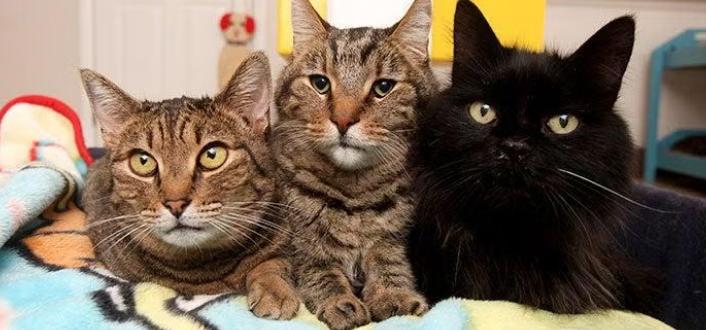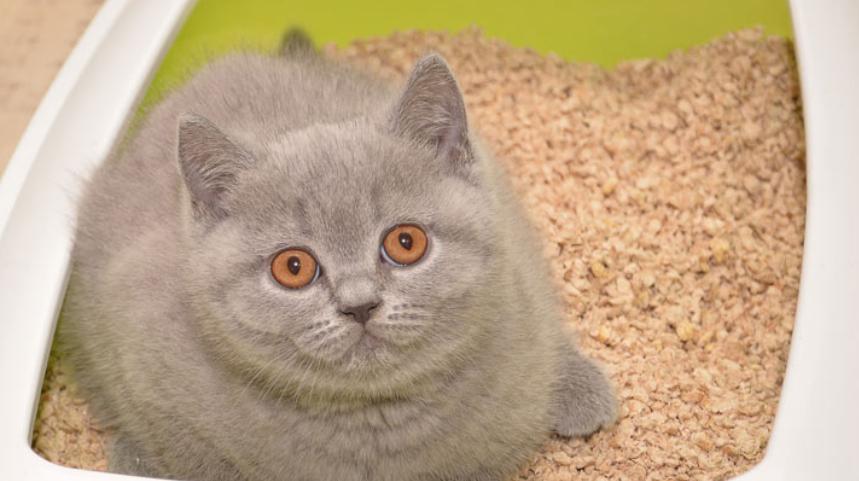What Is a Good Cat Repellent for Outdoor Use?
Outdoor cats can cause damage to your garden, scare away birds, and leave unpleasant messes. If you’re looking for ways to deter them, you’re in luck. What is a good cat repellent? Cat repellents can effectively keep them out of your yard. Whether you’re dealing with a stray or a neighbor’s pet, these solutions are designed to repel without harm. In this guide, we will explore different types of outdoor cat repellents, from natural sprays to physical barriers. We’ll also share how you can make a DIY solution at home. Let’s dive in!

Why Do You Need an Outdoor Cat Repellent?
Having cats roam freely in your yard can lead to several problems. Cats are natural hunters, and their presence may disturb the local wildlife, including birds and small animals. They can also dig up plants, leave waste in your garden, and scratch outdoor furniture or structures. Outdoor cat repellents help you maintain control of your space without harming the animals. They create an environment that cats find uninviting, encouraging them to move elsewhere. Whether you’re an avid gardener or simply want to keep your yard clean, investing in a reliable cat repellent is a humane way to protect your outdoor area from unwanted visitors.
What Are the Best Natural Cat Repellents?
Natural cat repellents are easy to make and safe for both cats and the environment. Let’s look at some of the most effective options.
Citrus-Based Repellents
Cats dislike the strong smell of citrus. You can use orange, lemon, or lime peels scattered around your garden to deter them. Alternatively, mix citrus juice with water and spray it in areas where cats frequent. The sharp scent is a natural way to keep them away. Citrus oils can also be added to water for a stronger deterrent.
Vinegar and Essential Oils
Vinegar’s pungent odor can repel cats. Mix equal parts of vinegar and water and spray it along the borders of your yard. Adding essential oils like lavender or eucalyptus to the mixture can enhance its effectiveness. Be careful to avoid oils like tea tree, which are harmful to cats. Lavender and peppermint are excellent options, but always use them in low concentrations.
Pepper, Garlic, and Onion Mixtures
Spices such as pepper, garlic, and onions irritate a cat’s sensitive nose. You can sprinkle a mixture of these spices in areas where you want to repel cats. Make sure to reapply after rain to keep the scent strong enough to deter them. Cayenne pepper, in particular, has been found to be an effective repellent, as cats dislike its intense heat when inhaled.

What Physical Barriers Can Help Repel Cats?
In addition to natural repellents, physical barriers can effectively keep cats away from your property.
Using Chicken Wire and Mulch
Placing chicken wire under your soil can prevent cats from digging in your garden. Cats dislike walking on unstable surfaces, and the wire provides enough discomfort to discourage them from returning. Covering the wire with mulch not only hides it but also reinforces the barrier by adding an uneven texture to the soil, making it uncomfortable for cats to walk or dig.
Motion-Activated Water Sprinklers
Motion-activated sprinklers are a popular and humane way to keep cats at bay. When the sensor detects movement, it releases a quick spray of water. Cats dislike sudden water sprays, so this will deter them from frequenting your yard. These devices are easy to install and can cover a significant portion of your yard. Plus, they work around the clock, making them a consistent deterrent.
Fencing Solutions
A well-built fence can prevent cats from entering your property. Cats are skilled climbers, so consider installing a fence with a tilted top or using cat-proof netting. These solutions make it difficult for cats to climb over, keeping them out of your space. A fence with an overhang, angled outward, can be particularly effective, as it prevents cats from getting a grip on the fence’s surface.
How to Make Your Own DIY Cat Repellent
If you prefer a homemade solution, DIY cat repellents are both affordable and effective. Here’s a simple recipe you can try:
Citrus-Vinegar Spray: Combine one cup of white vinegar with one cup of water. Add the juice of a lemon and a few drops of lavender essential oil. Pour the mixture into a spray bottle and apply it around your yard. The combination of vinegar’s sharp smell and citrus’s natural deterrent properties makes this spray an excellent option.
Pepper-Garlic Mix: Blend a tablespoon of cayenne pepper with two cloves of crushed garlic and water. Let the mixture sit overnight, then strain it and use the liquid to spray areas where cats tend to enter. The pungent scent will drive them away, and the pepper’s heat adds an extra layer of irritation for cats, deterring them from returning.
Onion Spray: Boil an onion in water for a few minutes, then let it cool. Strain the onion and pour the liquid into a spray bottle. This will create a strong scent that cats dislike. Onion is a natural irritant for cats, and this spray can be used in strategic areas to keep them away from sensitive zones, like gardens or flower beds.
These DIY solutions are easy to make and can be re-applied as needed, ensuring consistent protection for your yard. To maintain effectiveness, make sure to refresh the repellents every week or after rain.
Conclusion
Outdoor cat repellents provide a safe and humane way to protect your yard from unwanted feline visitors. Whether you choose natural sprays or physical barriers, the key is to make your garden unappealing to cats. If you’re wondering what is a good cat repellent, options like citrus-based sprays, ultrasonic devices, or motion-activated sprinklers are highly effective. With a combination of methods, you can create a cat-free space that allows you to enjoy your outdoor area without the disturbances that cats can cause. Remember, consistency is crucial for effectiveness, so keep your repellents fresh and your barriers in place for the best results. A mix of DIY repellents and barriers ensures a long-term, cat-free yard.
FAQs
Can I use essential oils to repel cats?
Yes, essential oils like lavender, peppermint, and eucalyptus are effective at repelling cats. However, avoid using oils like tea tree and citronella, as they can be toxic to cats if ingested. Always dilute essential oils before use to ensure they are safe for both the environment and the cats.
Are motion-activated sprinklers safe for cats?
Yes, motion-activated sprinklers are a humane option. They only release water when motion is detected, startling the cat but causing no harm. It’s a safe and effective way to keep cats away from your yard, providing consistent deterrence without the use of chemicals.
How often should I reapply natural repellents?
Natural repellents should be reapplied regularly, especially after rain or heavy watering. For best results, apply them at least once a week or whenever you notice their scent fading. This will help maintain the repellent’s effectiveness and keep cats from returning to your yard.


